Students Supporting Israel Club Continues Discussion on Israel-Palestinian Conflict
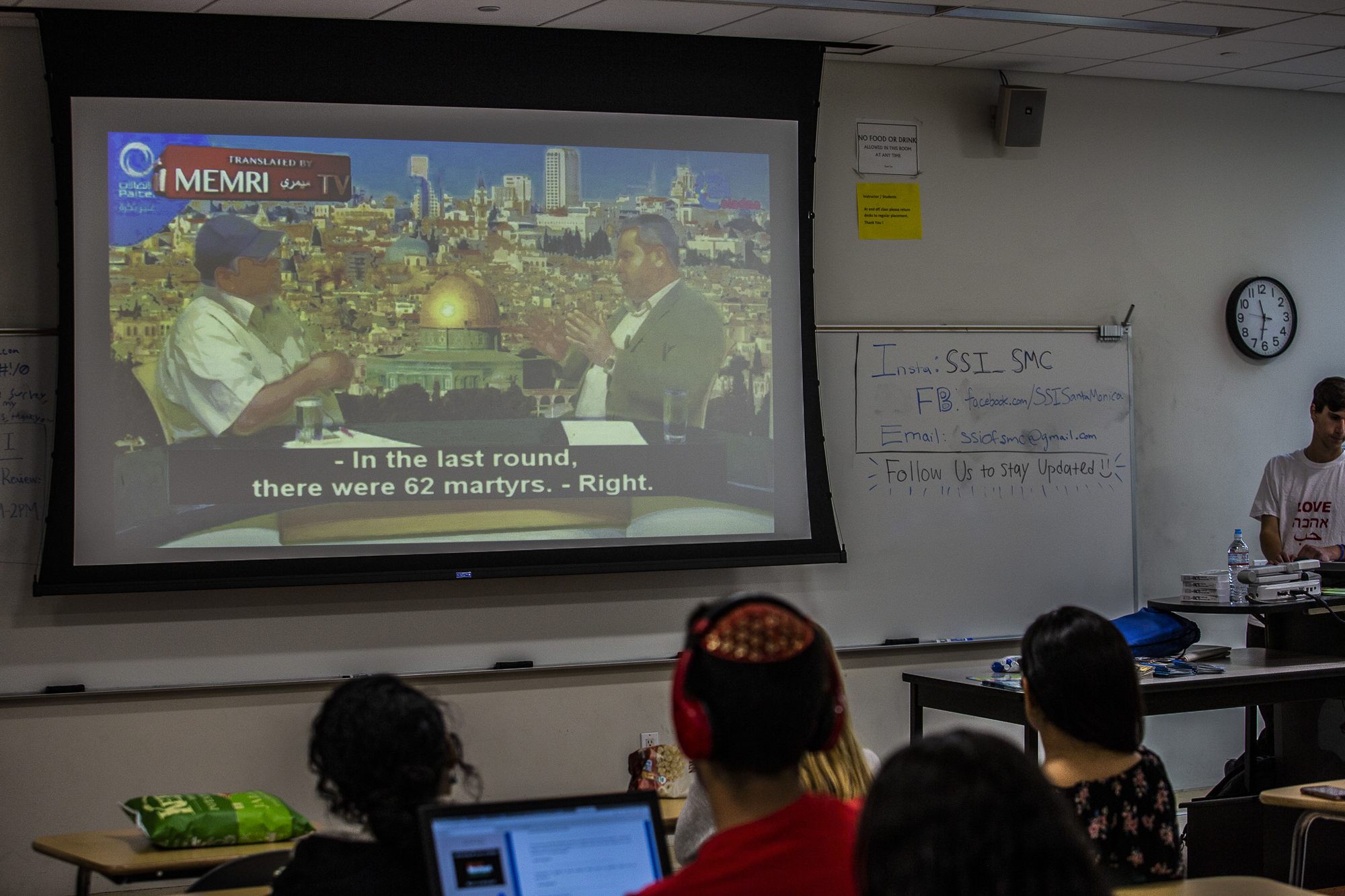
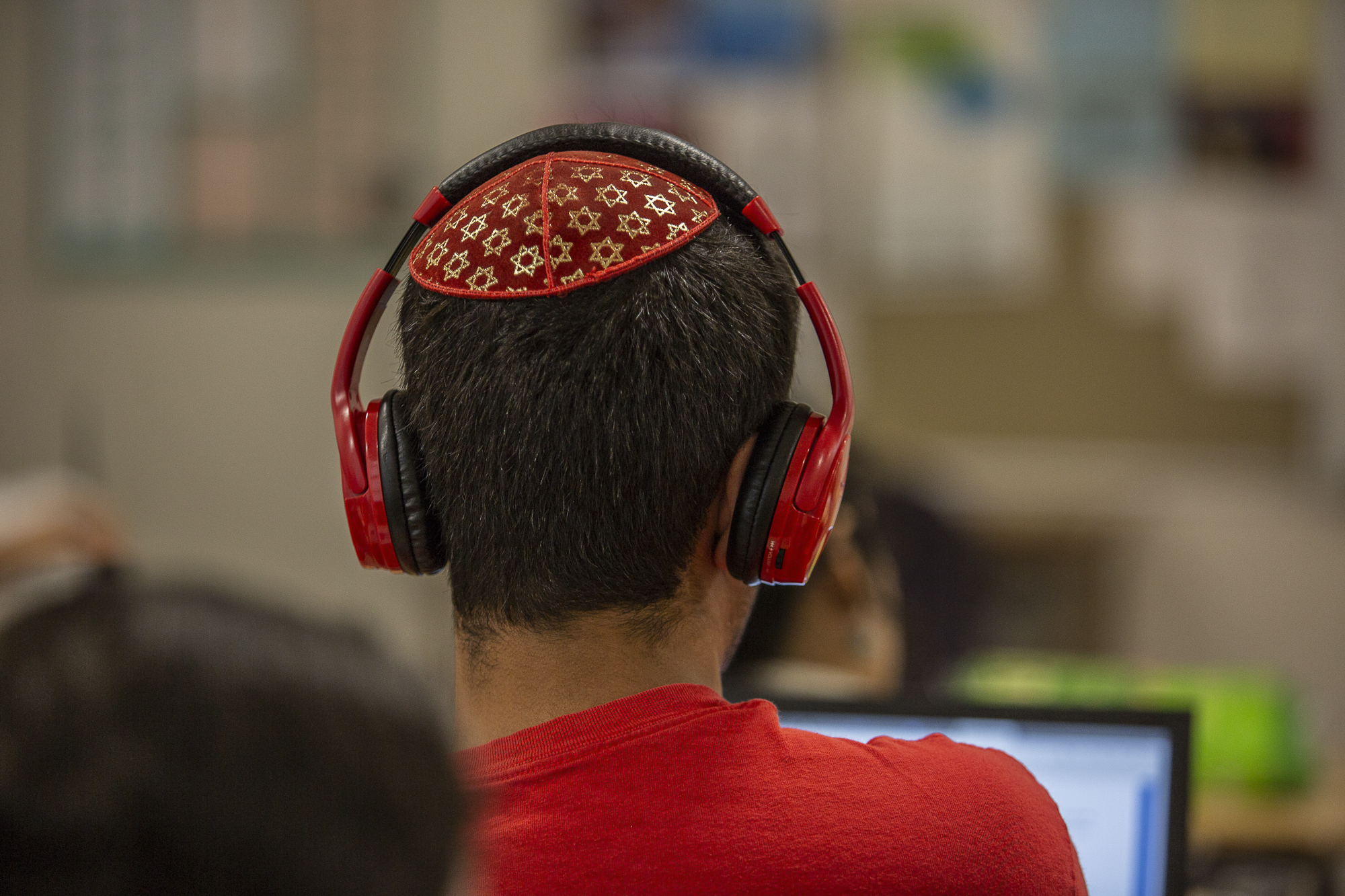
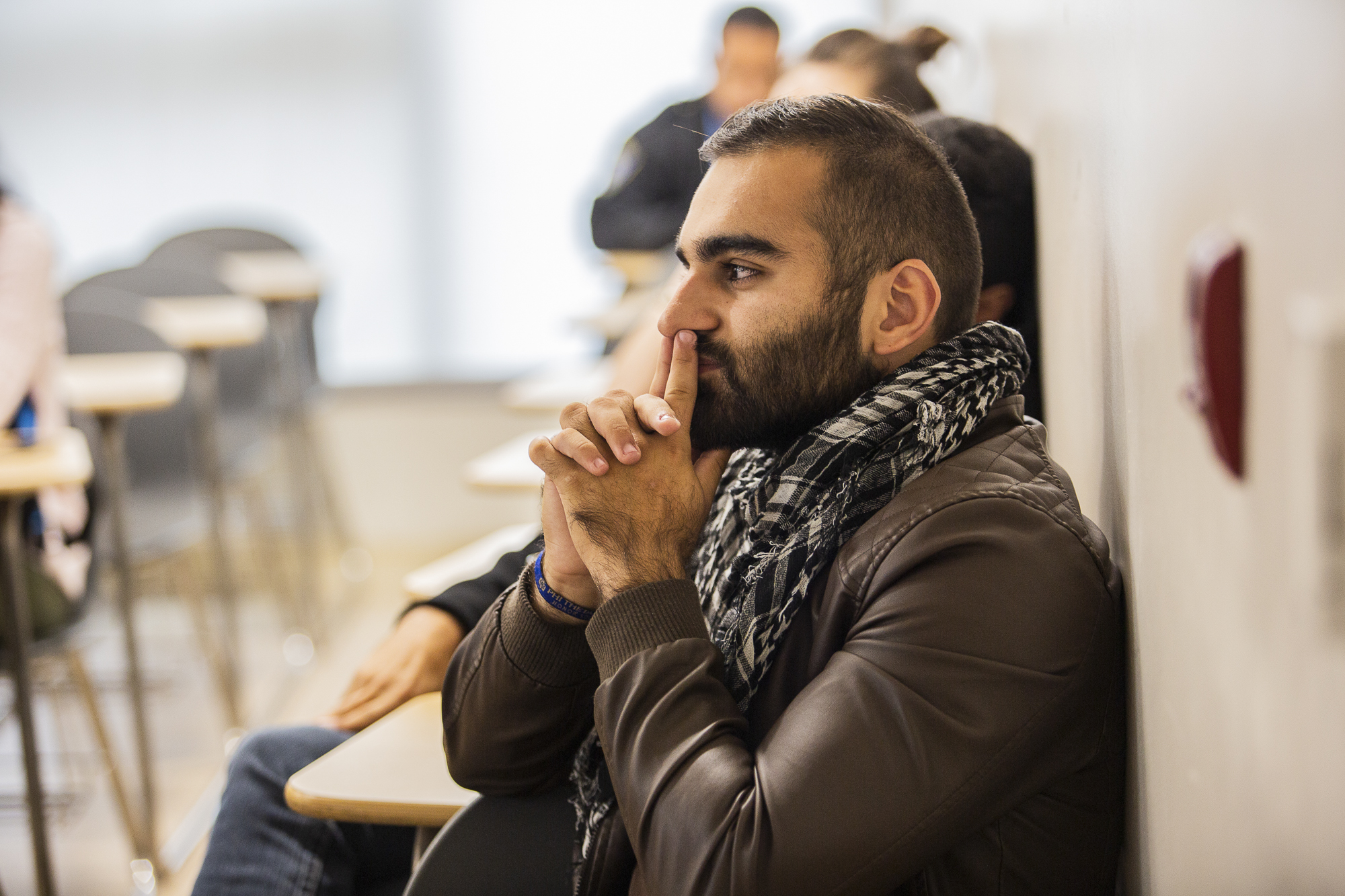
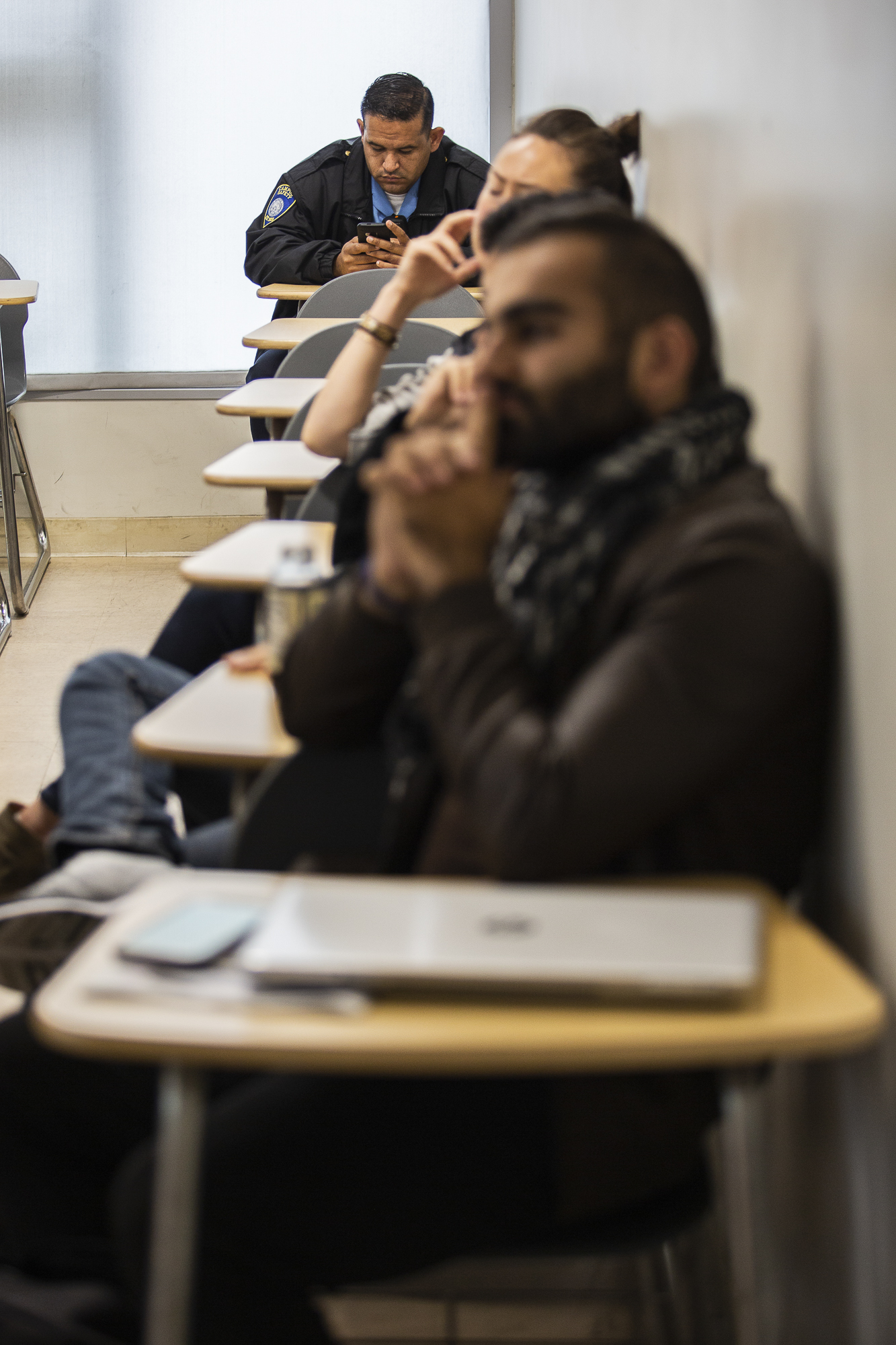
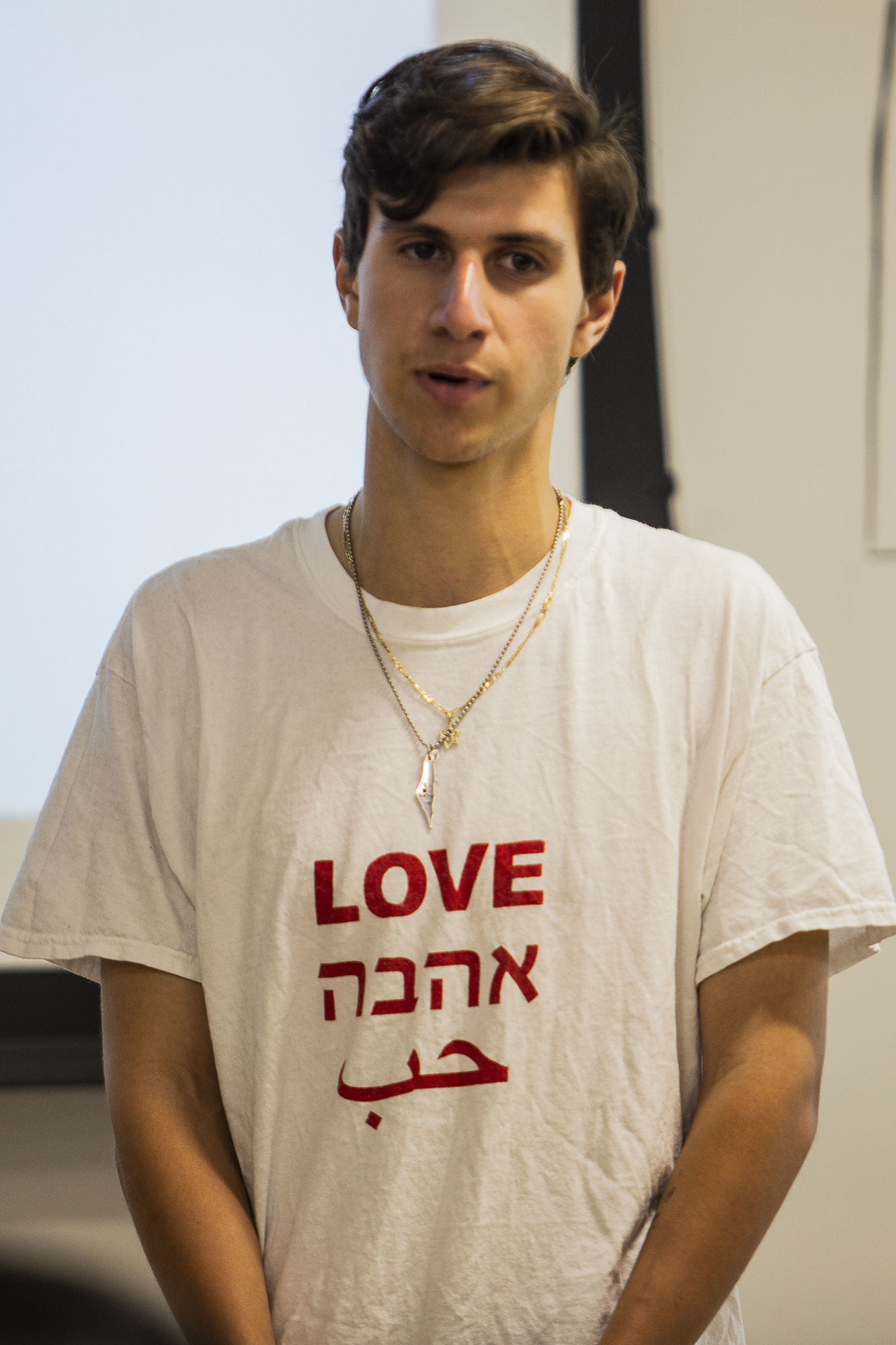
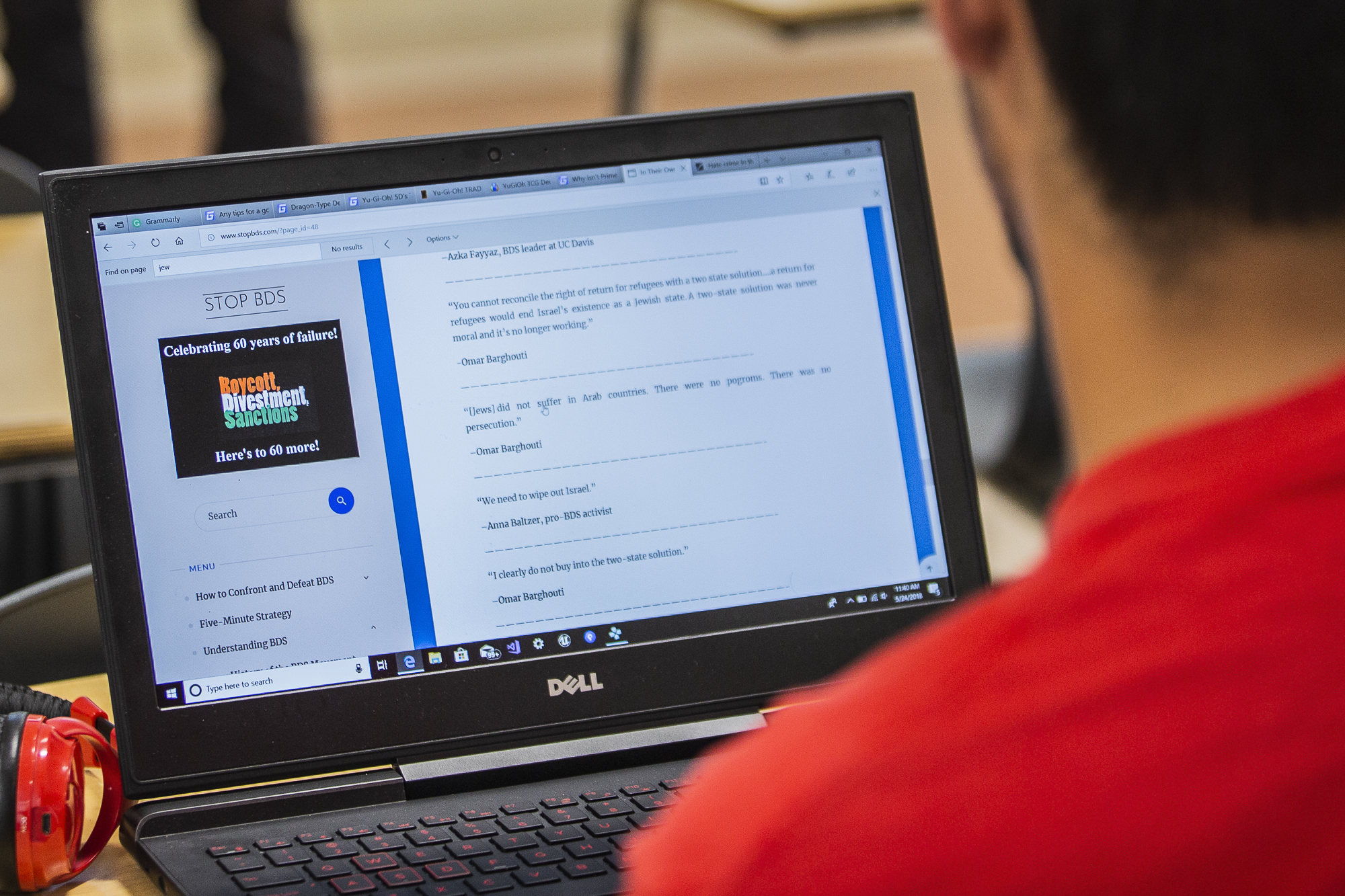
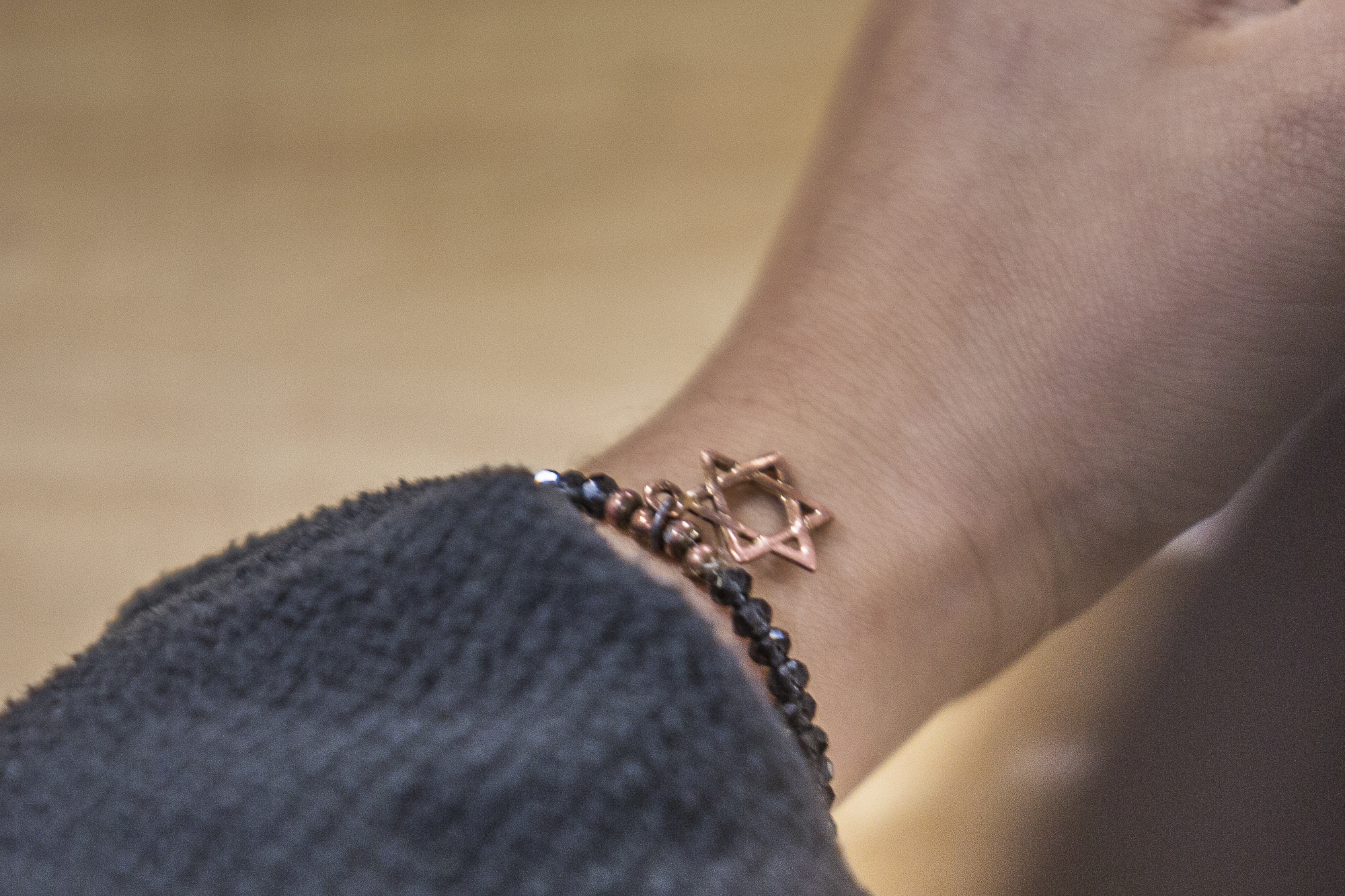


Two days following the discussion-turned-debate this past Tuesday, Justin Feldman, president of Santa Monica College's Students Supporting Israel (SSI) club, held a follow-up event to discuss the alleged misconceptions about the Israel-Palestine conflict.
“There’s been a lot of misinformation headlines out there on mainstream media," Feldman said. "We wanted to come together and answer the most difficult questions about the current events and also about the Israeli-Palestinian conflict at large.”
Just after 11:30 a.m., Feldman started off the event by showing videos of people in Gaza speaking anti-semitic statements played for the audience, which Feldman then followed up with by saying, “That’s exactly what we’re dealing with. For us to not take it seriously, for us to only trust Western headlines, you have to understand there’s a phenomena in political science, in diplomacy, called dog-whistling… when you’re saying one thing to a certain group of people… and you’re saying something completely different to other people in your cogent language.”
After the floor was open for the audience to participate, Hesham Jarmakani, the Associated Students vice president-elect, asked Feldman, “Do you believe Palestinians were forced out in 1948?”
Feldman replied by saying that he did not believe the vast majority were forced out of their land because "we have clear records of historians, Arab historians, Israeli historians, British diplomats, and other sources... saying that the Arab league and the countries that started the belligerency against Israel in 1948, the day after it declared its independence, initiated this war with the expectation that the state would be entirely wiped out."
He explained that many Palestinians headed towards Israel intending to come back in a few days. "They took keys, they took briefcases, expecting to come back in a matter of days," Feldman said. "We’ve had [Palestinian] leaders saying leave, expect to come back in a matter of days, clear the way, we’re going to push the Jews into the sea."
But Feldman did add that this did not apply to all Palestinians. "For those that were evacuated, that were forced to be displaced from their homes, my sympathy goes out to them.”
Questions from the audience continued for the remainder of the event, concluding at 12:35 p.m. Jarmakani stated he attended this event for the same reason he attended Tuesdays event, to support open-ended dialogue.
“This allowed me to understand one side's perspective on the matter," Jarmakani said. "It was very well informed, very thorough. It provided a lot of historical context and details.”
He added, “When it comes to certain matters like this, although the facts are important, you also have to take into consideration that there are certain aspects that do transcend these. I’m not saying that there are certain things that are more important than facts, you always have to take into consideration like certain individuals' personal accounts.”
Feldman said that articles published by Western media outlets, such as one from the New York Times, did not portray all sides of the Israel-Palestine conflict, he stated, “The biggest misconceptions are that this is a peaceful protest, it is not a peaceful protest… they’re bearing arms, they’re trying to break down a border, and basically massacre Israeli civilians just meters away. They have other means of weapons, such as pipe bombs and machetes and knives.”
Feldman said it is Hamas who is responsible for the recent deaths in Gaza, as Israel was only defending its people. “So, to say that Israel’s targeting just civilians just [be]cause, it doesn’t do justice for Palestinians or for Israelis," Feldman said. "Furthermore, to say that Israel is taking land or Israel is trying to subject a third class citizenship on people is a total misconception, total discriminatory statement, because it’s not conducive to peace when Hamas is controlling the lives of Palestinians and the PA [Palestinian Authority] is controlling the lives of Palestinians in the West Bank.”
The event brought people together of different sides, according to Feldman. “It went in the direction of bringing people together from all different sides," he said. "Bringing together common humanity and recognizing each others struggles and each others stories, and trying to bring justice for both Palestinians and Israelis.”
